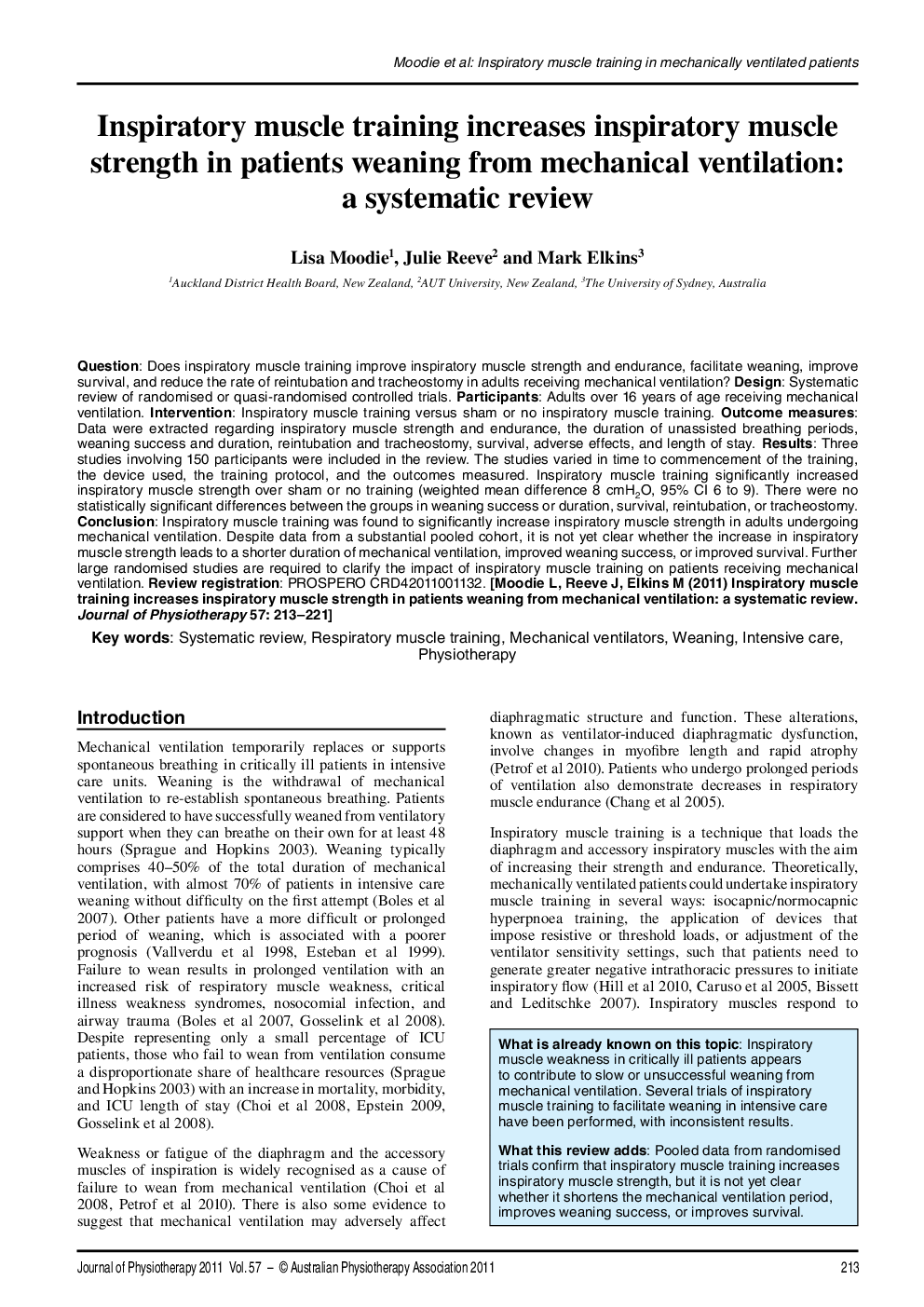| Article ID | Journal | Published Year | Pages | File Type |
|---|---|---|---|---|
| 2621837 | Journal of Physiotherapy | 2011 | 9 Pages |
QuestionDoes inspiratory muscle training improve inspiratory muscle strength and endurance, facilitate weaning, improve survival, and reduce the rate of reintubation and tracheostomy in adults receiving mechanical ventilation?DesignSystematic review of randomised or quasi-randomised controlled trials.ParticipantsAdults over 16 years of age receiving mechanical ventilation.InterventionInspiratory muscle training versus sham or no inspiratory muscle training.Outcome measuresData were extracted regarding inspiratory muscle strength and endurance, the duration of unassisted breathing periods, weaning success and duration, reintubation and tracheostomy, survival, adverse effects, and length of stay.ResultsThree studies involving 150 participants were included in the review. The studies varied in time to commencement of the training, the device used, the training protocol, and the outcomes measured. Inspiratory muscle training significantly increased inspiratory muscle strength over sham or no training (weighted mean difference 8 cmH2O, 95% CI 6 to 9). There were no statistically significant differences between the groups in weaning success or duration, survival, reintubation, or tracheostomy.ConclusionInspiratory muscle training was found to significantly increase inspiratory muscle strength in adults undergoing mechanical ventilation. Despite data from a substantial pooled cohort, it is not yet clear whether the increase in inspiratory muscle strength leads to a shorter duration of mechanical ventilation, improved weaning success, or improved survival. Further large randomised studies are required to clarify the impact of inspiratory muscle training on patients receiving mechanical ventilation.Review registrationPROSPERO CRD42011001132.
